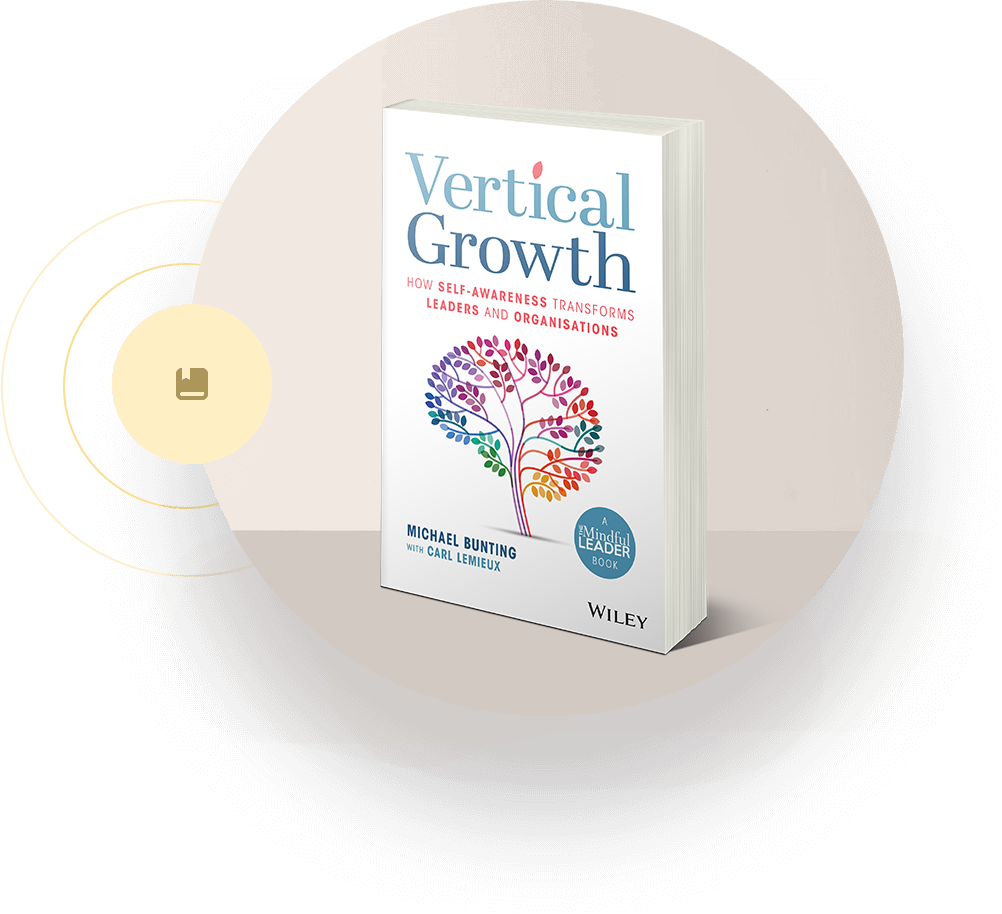The beginning of the leadership journey is defining clearly who you are, what you stand for and what your deepest values are — in short, your leadership philosophy. However, simply defining your leadership values is not enough. You also must actually live those values—in other words, walk your talk.
This is far more difficult than it seems, because of how the human brain is hardwired. Adult development psychologist Robert Kegan defines and details the normal stages of human development. The most common stage is what he calls ‘socialised mind.’ In this stage, we begin to exercise control over our own desires in order to fit into a family, group or organisation. This stage is about seeking approval and a sense of belonging. In a socialised mind, our self-worth depends more on what other people think about us, and less on our own beliefs about ourselves. It comes from who we are in the eyes of others and our place in a social group. Thus, we commonly fall prey to peer pressure, or do what we feel will bring us social acceptance rather than choosing and living our own values and behaviours.
As Margaret Dean, Head of People and Organisation at Novartis Oncology, shared with me, ‘I often fall into patterns of trying to stay in control or avoid looking stupid. This often leads me to do what will make me look good in the moment, rather than living according to what’s really important to me. For example, there have been moments when I wanted to speak truth to power, but I wasn’t brave enough to do it. I just told them what they wanted to hear.’
It’s very difficult for the socialised mind to challenge the system or to be truly innovative within an existing organisational system. Its goal of fitting in or being the best and brightest at what the organisation currently values is directly at odds with new ways of doing things. It’s good at being good at what the system rewards, and good at avoiding behaviours that might risk social exclusion or rejection.
Our need for approval typically takes two forms. The first is the need to impress. This too can come in many forms, including showing off a fancy car or home, winning awards, having a fancy job title or needing to sound intelligent. It’s craving to be in the limelight and to be appreciated. One common form of this is wanting to be the expert. We may boast of degrees, books published or university tenure, for example, to seek approval.
Another form of approval-seeking is trying to be a ‘nice’ person. We don’t confront others; we may even avoid the limelight, because we want to be liked.
My friend Grant and I enjoy playing tennis together. I have a hangover tendency to want to be a star and impress people. Grant, on the other hand, is the type of person who really wants others to like him. So whenever we play tennis I always try to beat him to ensure I am seen as a ‘winner’, while he always tries to let me win to be liked!
James Skinner, the Oceania Executive Development Coach at EY, admitted to me that his values were once chosen from his socialised mind. ‘In the past,’ he explained, ‘when I did values exercises, I would always pick things like fairness, kindness and compassion. I didn’t recognise that I was strongly influenced by my need to fit in, to belong and to be accepted. As a result, my delivery of those values could be used to conveniently create belonging for me, rather than genuinely helping others.
‘I’ve had to ask myself if my values are authentically true to me, or whether they were pushed onto me by my parents or society. And it goes all the way back to when I was in school. I was a member of every group, but not at the core. I was selected for leadership positions because of my ability to get along with everyone.
‘As I’ve aged and matured, I’ve realised that I have sacrificed a lot for this belonging and acceptance. I often haven’t expressed my true feelings, I’ve allowed people to take advantage of me, and I haven’t stood up for myself. I also haven’t delivered clear and direct feedback when I should have at times.
‘I’ve had an unconscious assumption that I could simply win everyone over to me through kindness, fairness and compassion. It’s been devastating for me to learn that some people haven’t fully trusted me because they see that I just try to get along with everyone.’
Living an examined life
There’s a reason why Socrates famously said, ‘The unexamined life is not worth living.’ In socialised mind we’re trapped by fears, denials and delusions. Our sense of self-worth and inner stability depend on the external world and other people’s validation of us. In a more advanced stage of development, what I call the ‘self-examining mind’, we begin to fully comprehend the psychological suffering in the numbness, delusion and helplessness of socialised mind. As our previously fractured mind settles into a new congruent home of ease, awareness and aliveness, we begin to understand that integrity is not a set of ethical rules, but rather a profound experience of wholeness.
The self-examining mind can see the need for external validation in the socialised mind. We can consciously choose our own values independently of our social groups. We are no longer subject to our need to be liked or admired. As one of our clients put it, ‘We can move from a motivation to look good, to a motivation to do good, even if we look bad doing it.’ Our needs and values are communicated to those around us who matter most without the fear of being judged or excluded.
We can stop being swayed by peer pressure and choose our own path in life, rather than simply fitting in. In the more advanced stages of the self-examining mind we are willing to sacrifice our need to be liked for the sake of our personal values. In other words, we begin to really walk our talk.
Kevin Callanan, Senior Vice President at the biopharmaceutical Sanofi, shared a story with me that illustrates the self-examining mind in action. Before entering the corporate world, Kevin was a self-employed lawyer. One company he represented was a manufacturer of nutraceutical products. One of their vitamin products, which earned more than a million dollars a year, was creating health issues for people. So Kevin approached them and advised them to move away from the product to maintain integrity in the market.
A representative of one of the companies they sold to approached Kevin and offered him $250 000 to stop his resistance to the product in a way that would not be illegal. Kevin recalled, ‘I remember in that moment that it was very easy to say, “No.” And I laughed at myself because my business was bootstrapped, it wasn’t family money, I was eating what I grew, and $250 000 could have made a huge difference to my business.
‘But I slept well that night. I thought the business owner would be mad at me, but he was actually really proud of me. He told me, “That’s exactly what I want you here for: to keep us honest and make sure we’re not making decisions that are just revenue-driven. We’re making products that are supposed to help people, and as soon as that mission is in jeopardy, the money doesn’t matter.” ’
In the socialised mind, our values are usually associated with what gets us safety and approval, rather than what helps us grow and develop. In the self-examining mind, we deliberately choose values to support our growth edge, values that help us to overcome our biggest fears and push us further towards a deeper level of integrity.
In another example, Urs Karkoschka, Head of Human Performance Innovation at Novartis, recalled how he had unconsciously developed the value of harmony as a child. He said, ‘I was the fourth child in my family, and my parents argued night and day. To survive in my family, I couldn’t add any more pain, so I always tried to stay in the background and only do things that would create harmony, rather than adding oil to the fire.
‘That desire is still very strong in me. It may be helpful in certain situations, but it has come at a cost. I will often give way to fear of disharmony and avoid difficult conversations that really need to happen, and in doing so I unintentionally break my precious value of integrity. I also have a tendency not to be honest with myself about my own needs in order to make everyone around me happy. I lose integrity with myself.’
To counteract this tendency, Urs has consciously cultivated the growth value of honesty. He has focused on developing the ability to have tough conversations and to assert his needs, even knowing it may come at the cost of disharmony or disapproval. This is the work of self-examining and of values-based leadership.
The question ‘What is the talk you’re trying to walk?’ can be a useful litmus test to gauge whether a person is in the socialised or self-examining mind. By definition, a person stuck in the socialised mind struggles to consciously choose and live by his own values because he’s subject to his need to be admired, liked and accepted by the group. To consciously and consistently choose to live one’s values requires a well-developed self-examining mind.
As David Tolman, General Counsel and Global Legal Head for Novartis Oncology, told me, ‘There was a time in my career when I definitely had the addiction to looking good. And I look back and think, If I was trying to live my values instead of looking good, would I have made a different choice? The more aligned you are with your values, the less you care about how you look. You’ve lost that addiction; you’re now much truer to what matters and in the end you’re going to feel better.’








